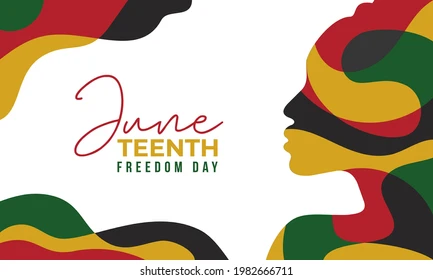by Gina Lopez
Juneteenth, also known as Freedom Day or Emancipation Day, holds significant historical and cultural importance in the United States. Commemorated annually on June 19th, Juneteenth marks the emancipation of enslaved African Americans in the country.
On January 1, 1863, President Abraham Lincoln issued the Emancipation Proclamation, which declared that all slaves in Confederate territory were to be set free. However, due to the complexities of the American Civil War and the limited reach of Union troops, the news of freedom reached enslaved individuals unevenly across the nation. It would take more than two years for the emancipation news to reach the farthest corners of the South.
The true significance of Juneteenth lies in the events that unfolded on June 19, 1865, in Galveston, Texas. It was on this day that Union General Gordon Granger arrived in Galveston and proclaimed that all enslaved people in Texas were free. This announcement, which came more than two months after the end of the Civil War, represented the final realization of emancipation for African Americans in the United States.
Juneteenth quickly became a day of immense importance and celebration for African Americans. Formerly enslaved individuals and their descendants gathered in parks, churches, and private homes to commemorate their freedom and to express their joy and gratitude. Juneteenth celebrations encompassed various traditions, including prayer services, speeches, picnics, parades, and musical performances. These festivities served as a powerful affirmation of African American resilience, unity, and cultural pride.
In the years following the initial Juneteenth celebrations, the holiday faced challenges and periods of diminished observance. Racial segregation, economic hardships, and systemic racism threatened to dampen the significance of Juneteenth. However, despite these obstacles, communities across the United States continued to honor and uphold the traditions of Juneteenth, preserving its legacy for future generations.
In recent years, there has been a remarkable resurgence in the observance and recognition of Juneteenth. This renewed interest has led to increased efforts to establish Juneteenth as a national holiday, highlighting its historical importance and providing an opportunity for widespread commemoration. In 2021, the U.S. Congress passed legislation to make Juneteenth a federal holiday, underscoring its significance as a milestone in the nation’s history and as a reminder of the ongoing struggle for racial equality.
Beyond its historical context, Juneteenth serves as a poignant reminder of the work still to be done in the pursuit of true equality and justice for all. It is a time to reflect on the progress made, acknowledge the resilience of African Americans, and renew commitments to dismantling systemic racism. Juneteenth celebrations provide a platform for dialogue, education, and engagement, fostering unity and promoting understanding across communities.
Juneteenth stands as a testament to the enduring spirit of resilience, hope, and freedom in the face of adversity. It symbolizes the struggles and achievements of African Americans throughout history and serves as a reminder that the fight for equality continues. By commemorating Juneteenth, we honor the past, celebrate the present, and commit to building a more inclusive and just future for all.
The Lyric Courtyard at California Center for the Art, Escondido will be the location for a Juneteenth Day of Restoration event on Sunday, June 25, 2023 from 11am to 4pm organized by Sip Wine & Beer. The event will focus on health, wellness, education and entrepreneurship. For more information visit artcenter.org

